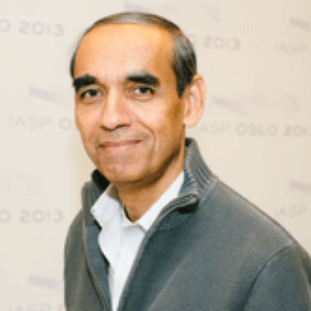Murad Khan is Professor Emeritus in the Department of Psychiatry, Aga Khan University (AKU), Karachi, Pakistan and Associate Faculty at the Centre for Bioethics and Culture (CBEC), Karachi. Professor Khan completed his medical degree (MBBS) from Karachi, Pakistan, residency and fellowship trainings (General & Old-age psychiatry) from the UK, obtaining the Membership of the Royal College of Psychiatrists, UK and his PhD from University of London.
Professor Khan has been researching suicidal behaviour in Pakistan over the last couple of decades. His areas of interest include role of socio-cultural and religious factors in suicidal behaviours. The principal investigator of the Karachi Suicide Study (KaSS), he conducted the first psychological autopsy study in Pakistan and one of the few in the Islamic world.
Professor Khan has published on suicide and deliberate self-harm in Pakistan and developing countries with several book chapters including the Oxford Textbook of Suicidology and Suicide Prevention: a Global Perspective and the International Handbook of Suicide Prevention: Research, Policy and Prevention. He is on the editorial board of a number of journals, including Crisis, International Journal of Social Psychiatry, Shanghai Archives of Psychiatry and International Review of Psychiatry and an international contributor to the WHO report on suicide prevention, Saving Lives: a Global Imperative’. other research interests include mental health of women and elderly, psychosomatic medicine and medical ethics.
A member of IASP since 1996, Professor Khan has served as National Representative for Pakistan, Chair of Council of National Representatives, Vice President and President of IASP. He currently sits on the IASP Executive Committee as representative of the College of Presidents.



